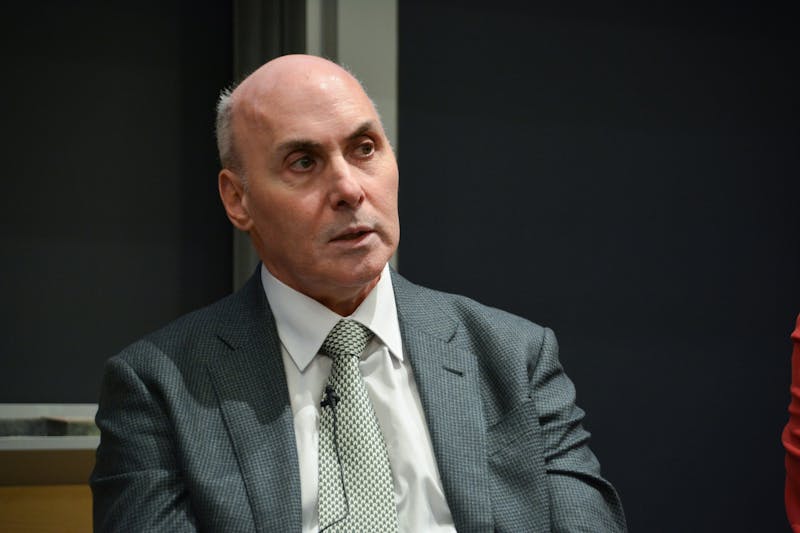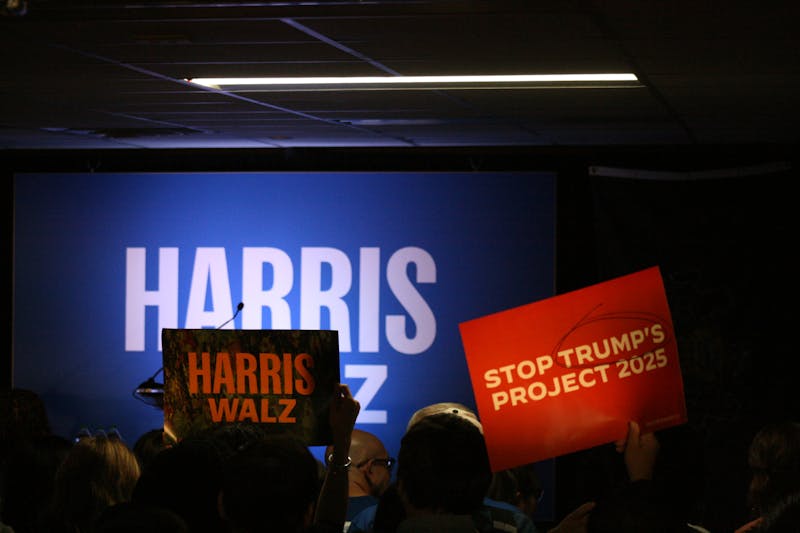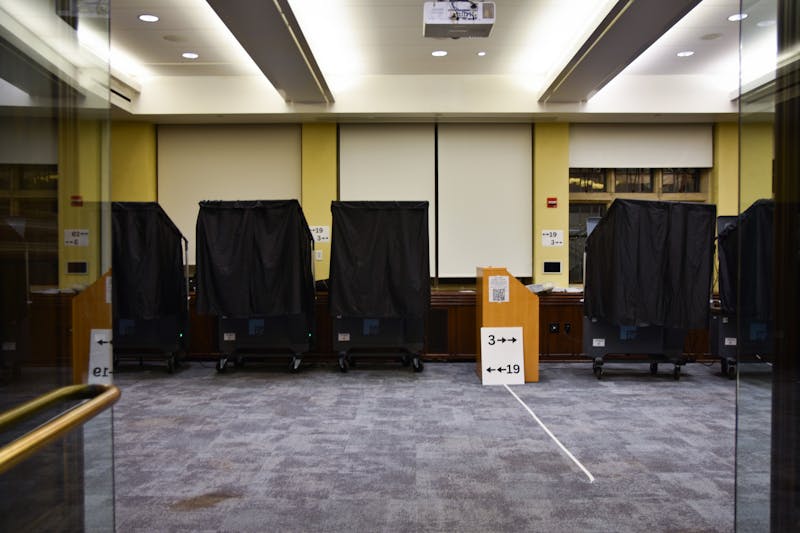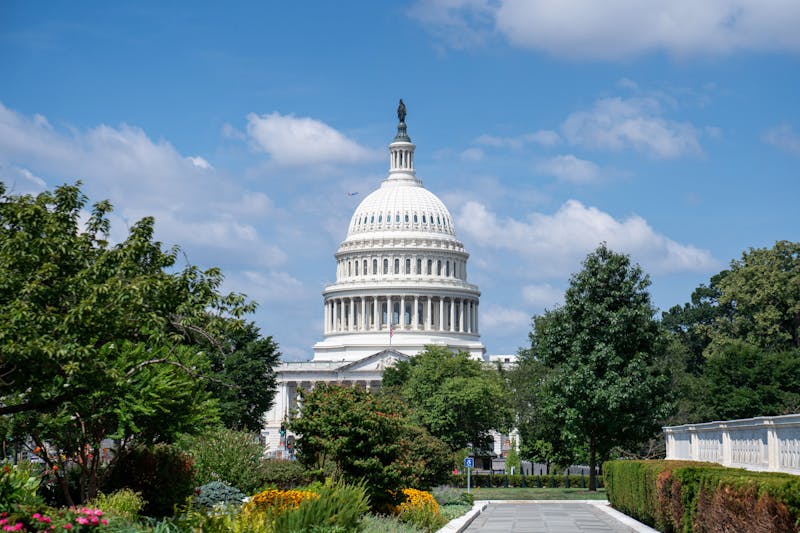
Several Penn medical experts voiced concern about 1968 Wharton graduate and President-elect Donald Trump's nominations of Robert F. Kennedy, Jr. and Mehmet Oz to health-related roles in his administration — suggesting that the two's track records make them unqualified for their roles.
Trump announced Kennedy Jr. as his nominee to oversee the Department of Health and Human Services on Nov. 14, and Oz — who received a M.D. from Penn’s Perelman School of Medicine and an MBA from the Wharton School in 1986 — to head the Centers for Medicare and Medicaid Services on Nov. 19. The Daily Pennsylvanian spoke with five experts about these choices and what they might mean for the nation.
As secretary of the Department of Health and Human Services, Kennedy would be the principal advisor to Trump on all health-related matters and would oversee the Food and Drug Administration, CMS, and the Center for Disease Control and Prevention, among other agencies.
Paul Offit, the director of the vaccine education center at the Children’s Hospital of Philadelphia, said that he is worried about Kennedy’s anti-vaccine stance.
“You have a man who is a virulent anti-vaccine activist, who is a science denialist, who is a conspiracy theorist, that now is being asked to head science-based agencies," Offit said. "Nothing good can come of that."
He added that he has no doubt that Kennedy will do "everything he can" to weaken the infrastructure of vaccines and scare people about vaccine safety issues.
“He could take vaccines that are currently protected by the Vaccine Injury Compensation Program, pull them out, and then subject them to the slings and arrows of outrageous civil litigation that would drive those vaccines off the market,” Offit said.
He further claimed that such action could lead to fewer children receiving necessary vaccines and an increased prevalence of vaccine-preventable diseases, resulting in children "suffer[ing] unnecessarily because of [Kennedy's] science denialism."
Professor of Obstetrics and Gynecology at the Medical School Sarita Sonalkar also said that Kennedy has a “track record” of supporting medical practices that are not evidence-based. She stated that his position in health leadership will detract from the public’s perception of the safety of important interventions, citing vaccination and water fluoridation.
Offit also denounced Oz — who will be tasked with running a federal agency providing health coverage to millions of Americans — for his stance on vaccinations. While Offit said that likes Oz and has been on his show several times, he also called him a “snake oil salesman” who has been “all over the place” with regard to his stance on vaccines.
After being trained as a heart surgeon, Oz later hosted “The Dr. Oz Show” — a popular talk show that discusses viewers' health concerns — for 13 seasons.
Alice Abernathy, an assistant professor of Obstetrics and Gynecology at the Hospital of the University of Pennsylvania, raised concern over the two nominees' stances on abortion — claiming that Kennedy and Oz have made confusing statements about abortion and “demonstrated a real misunderstanding about abortion, contraception, and early pregnancy care.”
She said that Kennedy and Oz could impact abortion by regulating access to mifepristone and misoprostol, the two medications that are used together to end a pregnancy or manage an early miscarriage, and enacting regulations that undercut access to telemedicine — a change which would likely impact the ability to access abortion due to the number of abortions that are undertaken early in pregnancy and through medicines.
According to Abernathy, while Kennedy has been historically pro-choice, he has also demonstrated a “proclivity to work with a number of special interest groups.”
“If [Trump and his administration] take on an anti-choice stance, then I think it’s very conceivable to think [Kennedy] may change his views,” Abernathy said.
In 2022, Oz said that he did not want the federal government involved in difficult conversations regarding abortion and that they should be left to “women, doctors, [and] local political leaders.”
Abernathy, however, said that she does not know to the degree to which Oz's comments would inspire his future policy decisions.
Offit also criticized Trump’s nominee for FDA commissioner — Johns Hopkins surgeon Marty Makary — and nominee for CDC Director, former Rep. Dave Weldon (R-Fla.), as “dangerous people” and “science denialists.” He particularly cited Weldon’s beliefs that vaccines cause autism — a claim which has been widely debunked by scientists and medical experts.
Offit added that people like Makary and Welder, who say they will root out the corruption in public health agencies, do so to "appeal to that sense of conspiracy, that there’s evil forces working behind a curtain."
He believes that there are many more qualified candidates for the aforementioned cabinet positions.
“I think it’s Donald Trump’s way of saying I’m going to do whatever I want to do,” Offit said. “It just seems that the goal-post is here is not capability as much as it is loyalty.”
Not all of the experts who spoke with the DP, however, directly criticized Oz and Kennedy Jr. or said that they would harm Americans.
University of Pennsylvania Carey Law School professor Allison Hoffman, whose research examines health insurance regulation and the Affordable Care Act, added that a lot of healthcare regulation happens at the state and city level — making it difficult to understand what is going to happen in the healthcare space. She said that, even if Kennedy Jr. attempts to take action at the federal level with regards to infectious diseases, states may end up doing the opposite.
Hanming Fang, the Joseph M. Cohen Term Professor of Economics and a professor in the Wharton School’s Department of Health Care Management, discussed the possibilities for what Oz may have in store for the CMS. According to Fang, Oz has expressed support for Medicare Advantage, a program allowing private insurers to offer Medicare benefits and has advocated for preventative health measures and personalized medicine.
“Given these factors, Dr. Oz’s leadership at CMS could lead to shifts in program priorities, emphasizing privatization and preventative care,” Fang said.
Hoffman added that, while there is a wide range of speculation surrounding Trump’s appointees, it is difficult to predict how the nominees' past views will influence their policies going forward.
“We never know what exactly an administration’s priority is going to be and how closely the priorities will be determined by the President versus by the heads of agencies,” she said.
She also said that the first question at hand is the uncertain process of confirmation by the U.S. Senate — a process in which at least 50 senators would need to vote in favor of Kennedy Jr. and Oz — and referenced the recent withdrawal of controversial former Rep. Matt Gaetz (R-Fla.) from his nomination to be Trump's attorney general.
The Daily Pennsylvanian is an independent, student-run newspaper. Please consider making a donation to support the coverage that shapes the University. Your generosity ensures a future of strong journalism at Penn.
Donate












